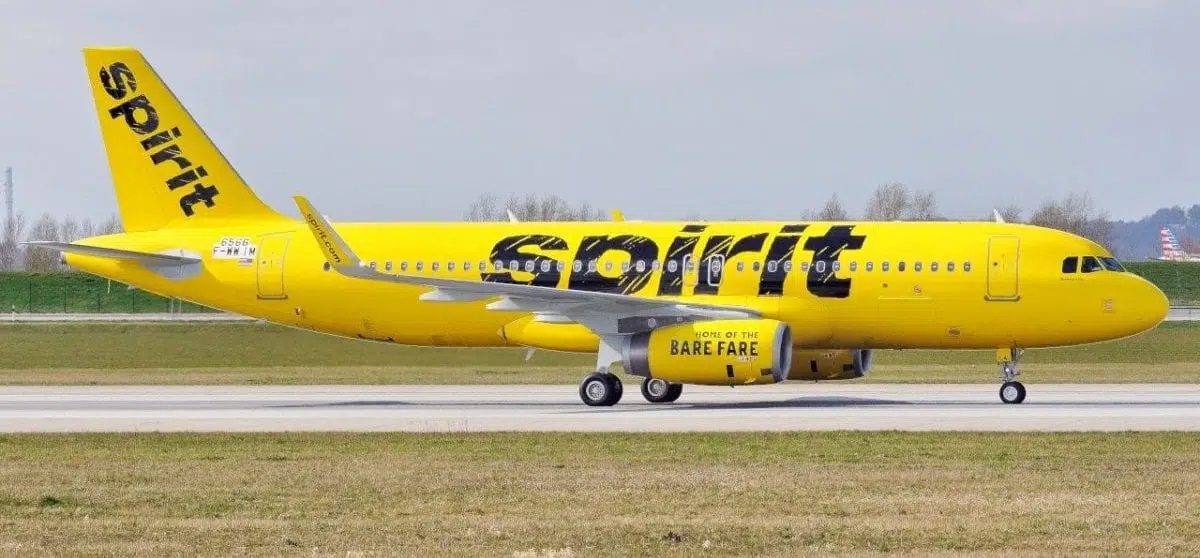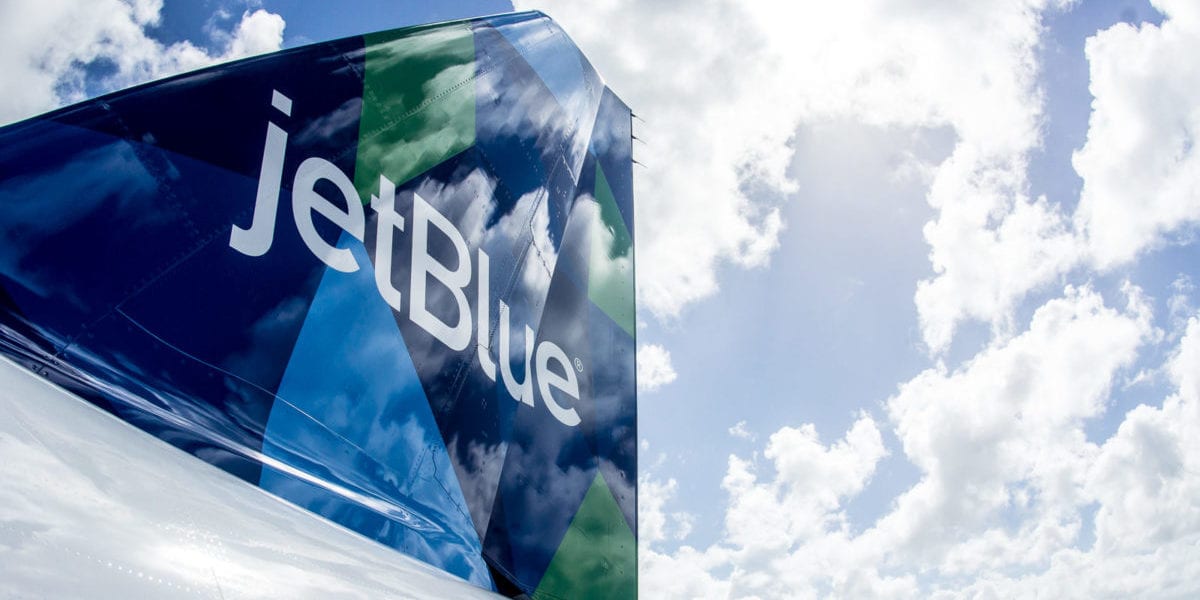A U.S. District Court judge officially blocked JetBlue's proposed takeover of Spirit Airlines on Tuesday, ruling the merger would violate federal antitrust law and would harm low-income Americans who rely on Spirit's lower fares.
JetBlue first made a surprise move to swallow Spirit Airlines nearly two years ago, eventually sweetening the offer to a $3.8 billion buyout package that beat out Frontier Airlines' own bid to acquire Spirit. But President Joe Biden's Department of Justice sued to stop JetBlue's bid altogether, arguing that removing Spirit from the U.S. airline industry would lead to higher fares for everyone.
Weeks after that federal trial wrapped up, Judge William Young of the U.S. District Court for the District of Massachusetts sided with the Department of Justice in his Tuesday ruling.
“Throughout trial, the Government invoked the experience of the average Spirit consumer: a college student in Boston hoping to visit her parents in San Juan, Puerto Rico; a large Boston family planning a vacation to Miami that can only afford the trip at Spirit’s prices. It is this large category (of) consumers, those who must rely on Spirit, that this merger would harm,” Young wrote.

Spirit's stock tanked after the news broke, losing half its value in a matter of minutes, while JetBlue's own stock price ticked up slightly. JetBlue and Spirit could still appeal the ruling to a higher court. On Tuesday afternoon, the airlines said in a joint statement they are “reviewing the court’s decision and are evaluating our next steps as part of the legal process.”
If JetBlue ditches its takeover bid or it ultimately fails, the price will be steep. One of the marquee pieces of JetBlue's offer for Spirit is a $70 million breakup fee paid to Spirit if the deal falls apart – plus a whopping $400 million payout straight to Spirit's shareholders.
It's too early to say if this is the final chapter, but Tuesday's ruling was another twist in the long and unlikely courtship for an ultra-low-cost carrier that many Americans love to hate.
JetBlue emerged as the victor by swooping in to outbid Frontier Airlines by more than 40% two summers ago, eventually winning over Spirit's shareholders after the airline itself rebuffed them. The two carriers combined would be the country's fifth-largest airline, but JetBlue's plan called for a combined airline that would look much more like JetBlue than Spirit: In with JetBlue's free snacks and gate-to-gate Wi-Fi, out with Spirit's knee-crunching legroom and barebones fares at rock-bottom rates.
The two airlines had tried to spin the proposed merger as a potential win for consumers, saying a bigger JetBlue would be able to better compete on price with the likes of American Airlines, Delta, Southwest, and United. But federal regulators didn't see it that way.
“By acquiring Spirit, JetBlue will eliminate the largest ultra-low-cost carrier in the United States,” Attorney General Merrick Garland said in a statement back when the department sued to block the merger. “If not blocked, the merger of JetBlue and Spirit would result in higher fares and fewer choices for tens of millions of travelers across the country. The Justice Department is suing to prevent that from happening.”
It's just the latest win for the DOJ in its hard line against airline consolidation. And it's a second heavy loss for JetBlue in less than a year: A different federal court ruled against JetBlue's partnership with American Airlines in the Northeast U.S. last May, forcing the carriers' so-called “Northeast Alliance” to unwind.
“Airline executives and their Wall Street backers are now on notice. The days of relentless consolidation are over,” William J. McGee, senior fellow for aviation and travel at the American Economic Liberties Project, said in a statement Tuesday. “We hope to see judges presiding over future airline mergers, like Alaska-Hawaiian, follow Judge Young’s lead.”
That decision further clouds an uncertain future for both carriers.
Spirit Airlines, in particular, has been hemorrhaging money for many months as budget carriers struggle to fill seats even at rock-bottom fares. JetBlue hasn't fared well financially either while continuing to struggle to keep flights running on time. And just this month, the airline announced that longtime CEO Robin Hayes would step down next month, citing health concerns.
